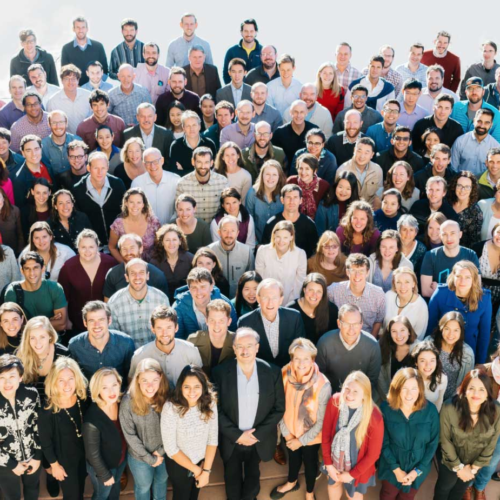
“Lumens as a Service” Can Unlock a $63 Billion Opportunity in the Commercial Building Sector“
Boulder, CO – May 4, 2017 – Today, Rocky Mountain Institute (RMI) released a new approach to delivering advanced lighting systems to the commercial building sector, tapping the $63 billion LED and advanced controls market and unlocking opportunities to significantly grow the market by 2035.
The report, Lumens as a Service (LaaS), reveals the strategies and accounting analysis behind a third-party financing model that can make LED lighting, when combined with advanced controls, a win-win-win for building owners and investors, service providers, and tenants.
U.S. buildings consume nearly three-quarters of all electricity, and are responsible for 39 percent of all greenhouse gas emissions. Growing awareness about the risk and opportunity posed by the building sector’s growing role in climate change is shifting tenant and investor preference, and influencing owners to improve the performance of their buildings to stay competitive. Whether building owners are retrofitting an existing building or designing a lighting system for a new high-rise office, LED lighting offers superior technology and a significant return on investment when compared to other technologies, and is expected to grow 45 percent per year through 2020.
But owners and property managers have capacity and capital constraints that limit their ability to assess different lighting system options and pay for the upfront cost to install new systems. The result is a massive underinvestment in advanced lighting systems that could otherwise provide cost savings, boost net operating income, and help better meet the demands of tenants seeking high-performance workplaces.
“The energy revolution has been fueled by business model innovation. Demand for renewable energy and mobility solutions are both exploding because the focus shifted to providing services to the end user, rather than selling them capital,” said Iain Campbell, managing director for RMI’s buildings program. “For solar photovoltaics, this was the power purchase agreement. For mobility, it’s been a shift from personal car ownership to mobility services provided by the likes of Uber and Lyft. To date buildings have largely been left behind. With LaaS, this will no longer be the case.”
The Lumens as a Service model overcomes challenges posed by the traditional asset-based business model by:
- Focusing on outcomes, not systems. LaaS enables a commercial building customer to define desired lighting outcomes for a service provider to deliver through a contracted lighting service. The lighting system is designed to meet the customer-defined outcomes, and is installed and maintained by a third party to optimize operation. This effective “transfer of control” is enabled by the digital nature of advanced LED systems.
- Shifting value and risk. A service provider can choose to pay “rent” to the customer to have the right to deploy a lighting system in his or her space. In exchange, the customer pays 100 percent of the lighting energy cost savings to the service provider, fully aligning the benefits of the upgrade to the roles that each party undertakes. The customer receives indirect benefits and maximizes asset value, given the potential rental income stream and implementation of high-quality lighting systems. The risk of owning and maintaining lighting shifts to service providers who specialize in evaluating energy savings and can optimize lighting performance to maximize savings.
When successfully deployed at scale, RMI hopes that the Lumens as a Service model might be just the beginning of other new “as a service” offerings that can drive new investment into building performance for the benefit of owners, occupants, and the environment.
Download the report here.
Notes to Editor:
In the report, RMI shows how industry can leverage a LaaS business model to scale the delivery of cost-optimized advanced LED lighting solutions and capture a share of the multi-billion dollar LaaS market. The report also describes the distinct advantages of LaaS over traditional asset-based business models, and cuts through “as a service” industry jargon by specifying the technical treatment of LaaS from the perspective of service providers and commercial building customers.
Media Enquiries:
Please contact Nick Steel: nsteel@rmi.org or Tel: (+44) 78301 85072

About Rocky Mountain Institute
Rocky Mountain Institute (RMI)—an independent nonprofit founded in 1982—transforms global energy use to create a clean, prosperous, and secure low-carbon future. It engages businesses, communities, institutions, and entrepreneurs to accelerate the adoption of market-based solutions that cost-effectively shift from fossil fuels to efficiency and renewables. RMI has offices in Basalt and Boulder, Colorado; New York City; Washington, D.C.; and Beijing.
